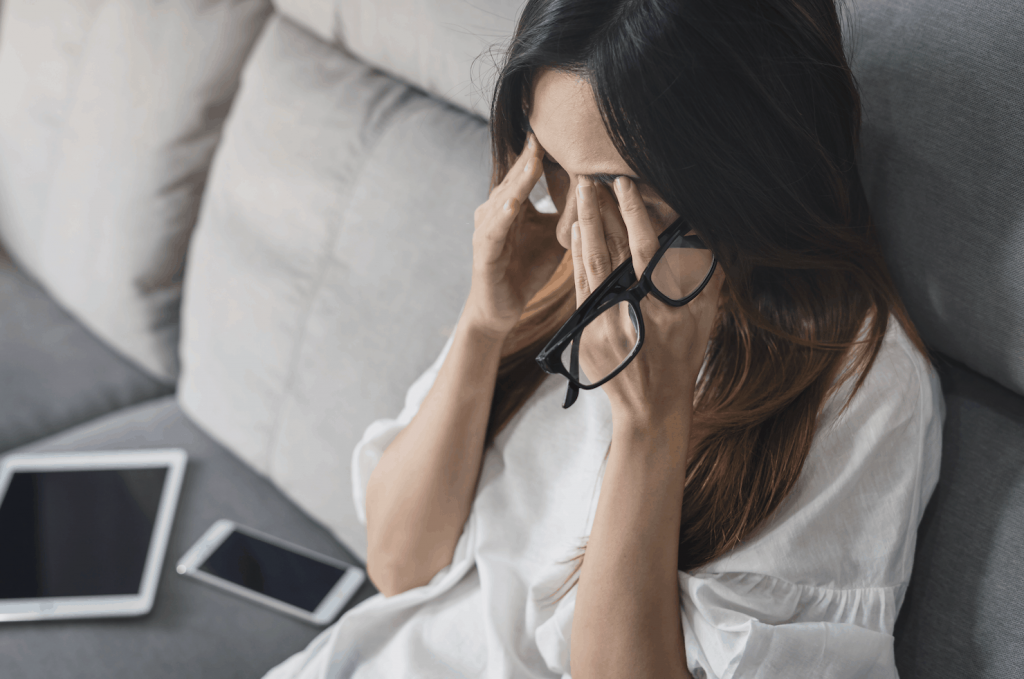It is generally accepted that stress on its own does not cause psoriasis. However, research has shown that stress and anxiety can worsen the symptoms or trigger a flare. The dictionary explanation for stress is ‘a state of mental or emotional strain or tension resulting from adverse or demanding circumstances.’ We all experience stress like this at some points in our lives but it is not always clear what the relationship is between psoriasis and stress. According to the National Psoriasis Foundation, stress is a bigger culprit for women than for men but, male or female, it will always generate a response in the skin.
Common stress generating events are:
- Job and academic pressure
- Health concerns
- Traumatic experiences
- Family discord
- Interviews
Obviously, there are many other situations in life that can make you feel stressed, but all these events force your body to change its chemistry. Prolonged stress will decrease production of T-Cells and other antibodies and eventually affect the body’s immunity. Stress will also cause hormonal and nutritional deficiencies, resulting in various autoimmune diseases, inflammation and allergies. As an autoimmune disease, psoriasis is therefore irrevocably linked to stress.
Vicious Cycle
This connection between psoriasis and stress continues and creates a vicious cycle due to the stress that is generated by the condition itself. Dealing with public life and discriminating behaviour, living with the self esteem issues generated by the continual flare ups of psoriasis patches and the pain and discomfort connected to that, all diverge to create a heavily stressful environment and the cycle continues to trigger psoriasis flares and further health difficulties.
The body’s main response to stress is inflammation. By overreacting and sending out too many chemicals to defend against external threats, your immune system will cause inflammation which will, in turn, worsen psoriasis.
Another response to stress is that your diet will be disturbed either by skipping meals, losing your appetite or possibly by over-eating, eating erratically and craving sugars and junk food. All of this hampers the digestion process making you susceptible to various issues like constipation, indigestion, acid reflux, etc. This in turn creates toxins in the body which go beyond the elimination capabilities of the liver, eventually triggering a psoriasis flare.
Smoking and drinking are universally known to be bad for psoriasis sufferers, creating their own health issues which will trigger psoriasis. Stress will enhance dependency on both of these. Anyone trying to cut cigarettes and alcohol from their diet to help with reducing the symptoms of psoriasis, will find that stress hinders this.
Sleep will be disturbed and the stress will possibly cause insomnia which is well known to worsen psoriasis.
So, it becomes evident that stress is often at the root of the continual psoriasis symptoms and the vicious cycle of psoriasis flares. This stress is something that needs to be broken down and dealt with.
Relieving the Stress
Unfortunately, there is no quick fix for stress and depression. Medication for the problem brings its own issues for the psoriasis sufferer. All we can offer here is a list of known stress busters and offer the advice that acknowledging your disease and your stresses openly with family members, close friends or even a professional therapist is a very important and life-changing first step.
Here are our top 10 choices of stress-relieving techniques that we recommend highly:
- Regular Exercise – This is one of the most important. Nothing relieves stress like a good workout.
- Yoga
- Meditation
- Relaxation Techniques
- Massage
- Counselling
- Lifestyle Changes – keeping reasonable working hours, taking time to rest, earlier nights for more sleep, less social arrangements, saying no to possibly
- stressful situations
- Dietary changes (plant based diet if possible) to remove acid foods, refined sugars and dairy products
- Regular eating patterns
It is impossible for any of us to avoid stress in our lives and we know that it would be too simplistic to say, stay calm, don’t stress and your psoriasis will disappear. It is always necessary to keep finding ways to relieve the symptoms by other means – hopefully through diet, natural topical treatments, probiotics and supplements, detoxifying the body and liver and exercising regularly. No doubt chemical, medical treatments will be necessary at certain points but working to keep stress at an absolute minimum in your life will go a long way to reducing the frequency of the flares and possibly keeping the symptoms under control in a very real manageable way.


